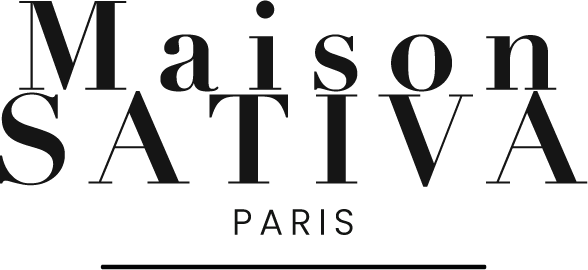CBD (cannabidiol) is a compound naturally found in the cannabis plant. Unlike THC (tetrahydrocannabinol), CBD does not cause psychotropic effects . Over the past few years, numerous studies have highlighted the potential therapeutic benefits of CBD, making it an interesting alternative for those seeking therapeutic effects without the psychotropic effects of THC. This article examines the benefits of CBD and highlights its differences from THC.
I. The therapeutic benefits of CBD:
A. Anxiolytic effects of CBD:
Several studies have suggested that CBD may have anxiolytic properties. A study published in the Journal of Clinical Psychology showed that CBD reduced anxiety in people with generalized anxiety disorder. Additionally, a literature review published in Neurotherapeutics highlighted CBD's potential in treating anxiety disorders, such as post-traumatic stress disorder (PTSD) and social phobias.
B. Anti-inflammatory effects of CBD:
CBD has shown anti-inflammatory properties in several studies. Researchers have observed that CBD can reduce inflammation in animal models of arthritis and inflammatory bowel disease . Additionally, a study published in Current Pharmaceutical Design reported the anti-inflammatory effects of CBD in neurological disorders such as multiple sclerosis .
C. Antipsychotic effects:
Although THC may worsen psychotic symptoms in some people, CBD may have antipsychotic effects . Research has shown that CBD may help alleviate symptoms of schizophrenia by reducing psychotic episodes .
A study published in JAMA Psychiatry demonstrated that CBD was effective in reducing symptoms in patients with schizophrenia.
II. Differences between CBD and THC:
A. Psychoactive effects:
The main difference between CBD and THC is their psychoactive effects. THC is responsible for the euphoric and psychotropic effects associated with cannabis use, while CBD does not cause these effects.
B. Legality:
In many countries, CBD is legal due to its lack of psychoactive effects. In contrast, the legislation surrounding THC varies widely, and its possession may be illegal in many places.
C. Side effects:
CBD is generally well tolerated and has few side effects. On the other hand, THC can cause adverse effects such as anxiety, paranoia and tachycardia, especially at high doses.
III. Using CBD as an alternative to THC:
A. Therapeutic benefits without the psychoactive effects:
One of the main reasons people turn to CBD over THC is its therapeutic potential without the psychoactive effects . This means that users can benefit from the medicinal properties of cannabis without experiencing the euphoric and mind-altering effects associated with THC. This allows people to maintain mental clarity and functionality while benefiting from the desired therapeutic effects.
B. Adaptability to different modes of consumption:
CBD is available in a variety of forms, including oils , capsules , topicals, raw CBD flowers , and even edibles . This allows users to choose the method that best suits their needs and personal preferences. For example, CBD oils taken sublingually allow rapid absorption into the body, while topical products can target specific areas for localized relief .
C. Fewer legal restrictions:
Due to its lack of psychoactive effects, CBD is often less regulated than THC. In many countries, CBD derived from hemp is legal, as long as it respects the THC concentration limits set by law (in France this rate is set at 0.3% maximum). This means that users can easily access and use CBD products legally, which is not always the case with THC.
In conclusion, CBD offers a promising alternative to THC for those seeking the therapeutic benefits of cannabis without the unwanted psychoactive effects. Scientific studies suggest that CBD may have anxiolytic, anti-inflammatory, and antipsychotic properties, among other potential health benefits. In addition, CBD is legal in many countries such as France and has few or no side effects unlike THC. However, it is always important to consult a healthcare professional before beginning any therapeutic use of CBD.
Sources:
- Blessing, EM, Steenkamp, MM, Manzanares, J., & Marmar, CR (2015). Cannabidiol as a potential treatment for anxiety disorders. Neurotherapeutics, 12(4), 825-836.
- Burstein, S. (2015). Cannabidiol (CBD) and its analogs: a review of their effects on inflammation. Bioorganic & Medicinal Chemistry, 23(7), 1377-1385.
- McGuire, P., Robson, P., Cubala, WJ, Vasile, D., Morrison, PD, Barron, R., ... & Wright, S. (2017). Cannabidiol (CBD) as an adjunctive therapy in schizophrenia: a multicenter randomized controlled trial. American Journal of Psychiatry, 175(3), 225-231.
Note: This article provides general information about CBD and does not constitute medical advice. Please consult a healthcare professional before undertaking any CBD treatment.

